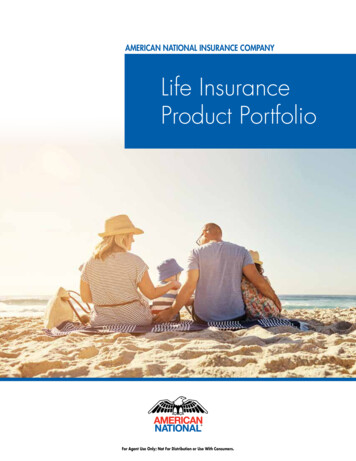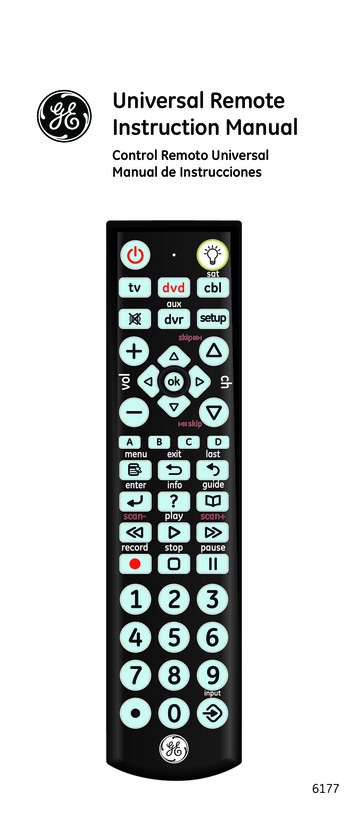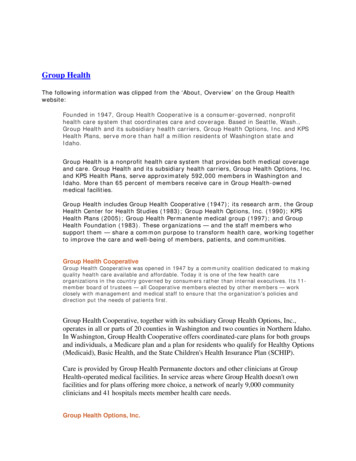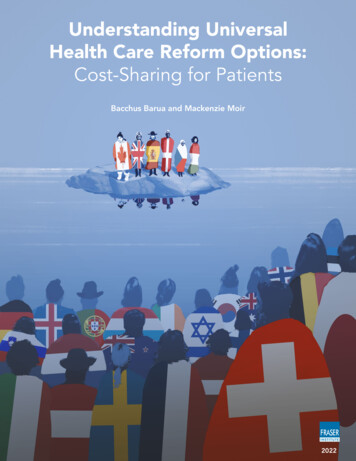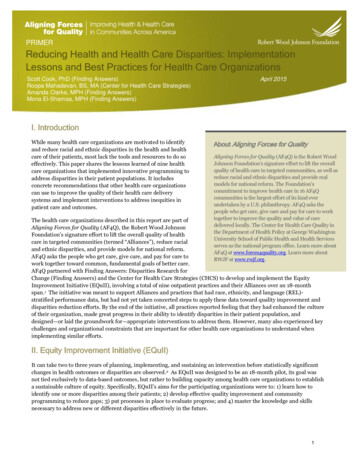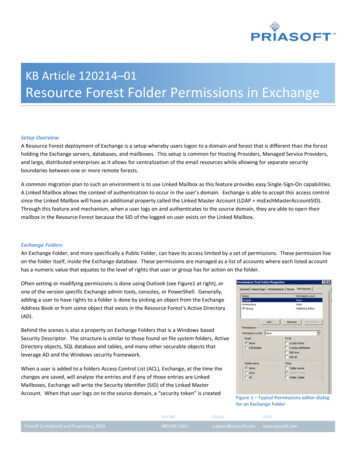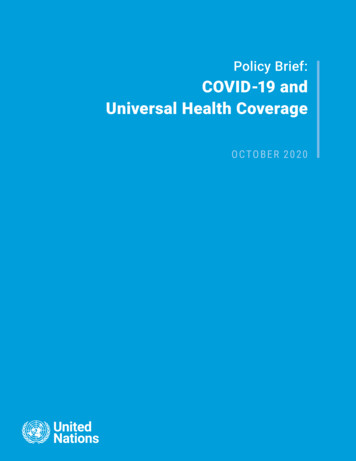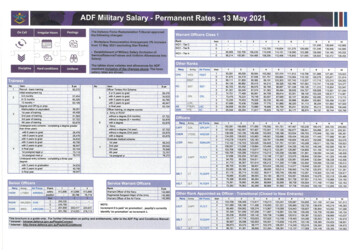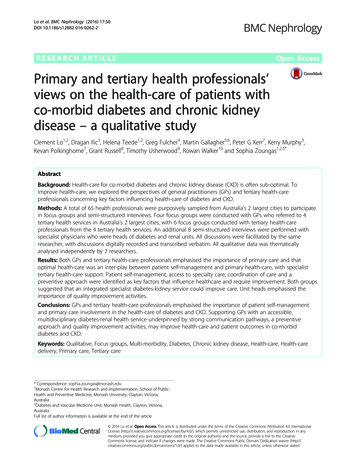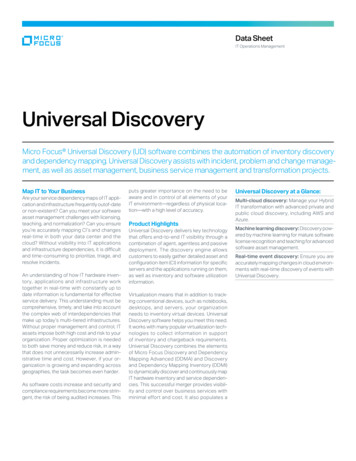
Transcription
Universal Health Care Work GroupCharter, DRAFT Updated November 6, 2019The purpose of this charter is to clarify the charge and responsibilities of, and expectations for theUniversal Health Care Work Group (Work Group). Work Group members will be asked to review,provided feedback on, and affirm a revised version of this a draft charter at the first meeting of theWork Group. Work Group members will be asked to review and affirm this revised charter at theDecember meeting.About the Work GroupHouse Bill 1109, which passed during the 2019 Washington State legislative session, directs theWashington State Health Care Authority (HCA) to convene a Work Group on establishing a universalhealth care system in Washington. This Work Group will study and make recommendations to theLegislature on how to create, implement, maintain, and fund a universal health care system that issustainable and affordable to all Washington residents. The legislation specifies that the universal healthcare system may include publicly funded, publicly administered, and publicly and privately deliveredhealth care.The legislation requires the Work Group to report its findings and recommendations to the WashingtonState Legislature by November 15, 2020.Charge of the Work GroupThe Work Group is charged with studying and making recommendations to the Washington StateLegislature. To the degree possible, tThe Work Group will deliberate on the following, and to the extentpossible given the timeframe and resources, address in final recommendations recommendationsshould address: Ideas for increasing coverage and access for uninsured and underinsured populations, with thegoal of improving health equity and reducing health disparities. In seeking ideas, the WorkGroup may consider existing models such as the Department of Veteran’s Affairs and Indian andTribal Health systems.Transparency measures across major health system players—including insurance carriers,hospitals and other health care facilities, Indian and Tribal Health systems, pharmaceuticalcompanies, and health care provider groups—that promote understanding and analyses to bestmanage and lower health care costs.Innovations that promote evidence-based practice, health care quality, sustainability, culturallyattuned, community-based health models, and affordability.Ways to support transition to a universal health care system for all stakeholders, including butnot limited to consumers, businesses, health care providers, hospitals and other health carefacilities, Indian and Tribal Health systems, hospitals, health insurance carriers, state agencies,and entities representing management and labor for these stakeholders.Options for revenue and financing mechanisms to fund the universal health care system.
MembershipHB 1109 indicates the Work Group must consist of a broad range of stakeholders with experience indifferent aspects of health care financing and delivery, including: Consumers, patients, and the general public.Patient advocates and community health advocates.Large and small businesses with experience with large and small group insurance and selfinsured models.Labor, including experience with Taft-Hartley coverage. 1Health care providers, including those who are self-employed.Health care facilities, such as hospitals and clinics.Health insurance carriers.State agencies, including the Washington State Health Benefit Exchange, Office of FinancialManagement, Office of the Insurance Commissioner, Department of Revenue, and Office of theState Treasurer.Legislators from each caucus of the House of Representatives and the Senate.Work Group members were selected based on the following criteria: Member of a stakeholder group listed in HB 1109.Experience with an aspect of health care financing and/or delivery.Willingness and ability to review background materials in advance of all Work Group meetings,adhere to ground rules established by the Work Group, and support positive and productivediscussions.The Work Group also includes Tribal members. To identify these members, HCA consulted with itsOffice of Tribal Affairs and Analysis Division and several Tribes across Washington State.Lastly, to provide a broad range of perspectives to the Legislature, effort was made to ensure thecomposition of the Work Group included geographic, socio-economic, ethnic and racial, and genderdiversity.Roles and ResponsibilitiesWork Group members will: Participate in up to nine eight meetings between September 2019 and November 2020.Review background materials in advance of meetings.Engage in positive, productive communication with other members, the Chair, Facilitator, andproject staff.Share their perspectives, based on lived and/or work experience(s) with different aspects ofhealth care finance and delivery.Passed in 1947, the Taft-Hartley Act is a federal law that created new rules for how unions couldoperate. It also created Taft-Hartley plans, which allow multiple employers to pool their resources tocreate a shared health insurance plan.21
Review and provide written comments on meeting summaries and two draft Work Groupreports.The Work Group Chair will: Ensure members of the Work Group understand their charge.Work with the project team to prepare meeting agendas.Start and end meetings on time, unless the Work Group agrees unanimously to extend themeeting time.Present the Work Group’s findings and report to the appropriate Legislative Committees,enlisting the help of other members of the Work Group when appropriate.The Facilitator will: Work with the Chair to develop meeting agendas.Distribute meeting agendas and background materials at least one week prior to the scheduledmeeting.Work with the project team to develop information, written materials, and presentations thatsupport the Work Group’s deliberations.Ensure that each Work Group member has a meaningful opportunity to participate indiscussions.Keep meetings focused on the agenda.Periodically review the Work Group’s progress and recommend adjustments to course asneeded.The project team (the HCA staff, plus consultants) will: Provide background materials, presentations, and data to Work Group members to inform theirdeliberations.Be present and available at Work Group meetings to answer questions and inform thediscussion.Draft and revise the final Work Group report, based on Work Group members’ direction andfeedback.Coordinate meeting logistics.Summarize the outcomes of the Work Group meetings in meeting summaries.Meeting Guidelines The Facilitator will ensure all participants have the opportunity to ask questions and providecomments. Discussions will allow for the development of a consensus, but consensus is notrequired.Meetings will begin and end on time. If agenda items cannot be completed on time, the groupmay agree unanimously to extend the meeting.At the meetings, Work Group members will:o Show up on time and come prepared to contribute to achieving the meeting goals.3
Share the available speaking time. Respect the group’s time and keep comments briefand to the point, avoid repeating what others have already said, and when a topic hasbeen closed out, avoid bringing it back up again.o Focus on successfully completing the agreed upon agenda and meeting objectives. If amember raises a problem, they will try to also provide a solution.o Stay mentally and physically present. Listen attentively, Aavoid side discussions whenothers are speaking, and wait until breaks to attend to non-Work Group business.o Attack the problem, not the person. Work Group members will respectfully challengeideas, not the person.o Voice concerns and complaints at the meeting, not outside the meeting.o Put cell phones on silent.Persons who are not members of the Work Group may attend meetings as observers, but maynot participate in group discussion and deliberations, unless called upon. There will be adesignated public comment period at every Work Group meeting for the public to share theirinput.o Decision-makingThe Legislature is responsible for making decisions about how to implement universal health care inWashington and is looking to the Work Group for insights and perspectives to inform the Legislature’sdecision-making. As such, the Work Group is not expected to come to group agreement on all of itsrecommendations. The meeting summary and reports to the Legislature will document the range ofdiscussions and perspectives.Meeting Summaries The project team will prepare a high-level written summary of the discussion and commentsfollowing each meeting.Meeting summaries will describe areas of agreement and disagreement and clarify where andwhy there is a disagreement to the degree possible. The meeting summaries will strive tosummarize all points of view clearly and fairly.The project team will send meeting summaries to Work Group members for their review prior tofinalizing.CommunicationInternallyIn the interest of streamlining communications, the Facilitator will communicate directly with WorkGroup members. If a Work Group member would like to communicate with the rest of the Work Group,they should send the Facilitator an email for distribution to the larger group. The Facilitator may chooseto bundle this email with other emails to the Work Group.4
ExternallyParticipants of the Work Group should not represent themselves as speaking for the Work Group unlessdirected to do so. This working rule in no way restricts individual participants, in their capacity ascitizens, from interacting with elected officials, the media, or community organizations.5
Charter, DRAFT Updated November 6, 2019 . The purpose of this charter is to clarify the charge and responsibilities of, and expectations for the Universal Health Care Work Group (Work Group). Work Group members will be asked to review, provided feedback on, and affirm a revised version of this a draft charter at the first meeting of the Work Group.
